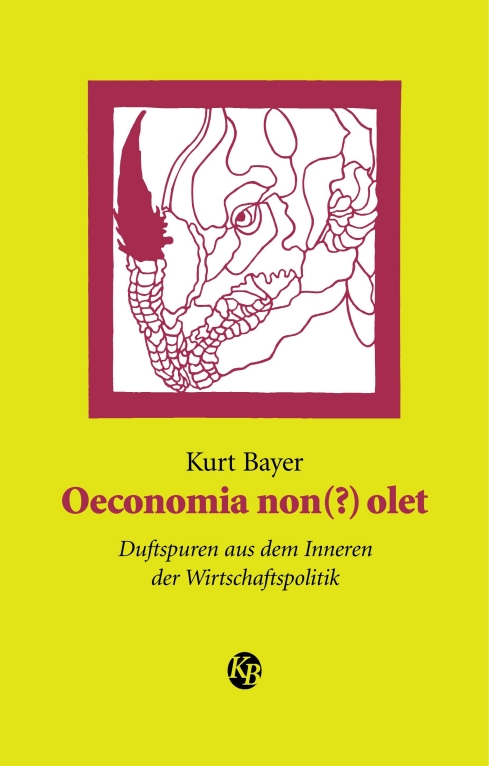Karl Marx’s ideas are said to experience a re-animation as a result of the present crisis. While not everybody agrees with that, I was surprised that when I recently chaired a session on European financial market supervision (“Centralised or Decentralised: Banking Supervision and Resolution in the Banking Union”) at the 2014 European Forum in Alpbach, that all my panelists – one EU parliamentarian, two financial market regulators, one banker and one banking lobbyist, unisono denied the gist of my introductory statement, that all the steps taken towards re-regulating financial markets during the past years had not fundamentally changed the way how financial markets worked.
In my intorduction I had quoted IMF (ex) grandees Raghuram Rajan (formerly chief economist of IMF, now president of the National Bank of India) and managing director Christine Lagarde, both of whom had lamented that re-regulation had not gone far enough, that massive industry lobbying had pushed back many well-intentioned attempts by regulators and that the global state of financial markets today might be prone to cause another, even deeper, crisis. I had quoted other analysts’ criticism that past regulation efforts neglected macroeconomic and political economy aspects, that the European Banking Union remained perilously incomplete, that efforts for a European financial transactions tax had come to a standstill, that regulatory and tax arbitrage remained a global threat because of the ongoing existence of tax and regulatory havens, that the root causes of the crisis (imbalances between and within countries, the explosion of financial transactions from 15 times GDP to 80 times GDP within 25 years, the concomitant strengthening of the lobbying power of the financial industry, excessive and risk-promoting remuneration systems, and many others) had not been eliminated, that the booming shadow banking sector remained completely unregulated. In short, that despite multiple efforts around the world, a veritable change-around had not occurred. I had used this list of criticisms as a (slightly) provocative way to enliven the panel debate.
And how I succeeded. The parliamentarian instructed me that I was completely wrong, that he could not disagree more, that the European Parliament had worked night and day to get the Banking Union, the Common Rule Book and many other things on the way, that these days they were starting to tackle the “too-big-to-fail” problem, in short that the European Banking scene today was miles away from that of 2008. The Austrian regulators reported on their efforts in Austria and at the European levels and also showed themselves rather proud of “what had been achieved”. The banker complained about a too high and expensive regulatory burden which threatened to infringe on his bank’s target rate of return of 12% plus. The lobbyist also mentioned the stifling effects of the new regulations and denied the existence of a credit crunch, but stated that it was rather the new regulations which prevented risk-taking and thus extending loans to SME. When I asked the panel whether they did not think that a 12% target rate created new imbalances in an economy which does not grow, whether such a high sectoral rate was not “exploitative” of the other sectors which the financial sector is supposed to serve, I was given rather short shrift and instructed that this was a “risk premium”, thus justified. When I asked about the macroeconomic underpinnings of required regulation, I did not receive any answers. Of course, all the panelists were well informed about their respective tasks, and full of praise or recognition that all the efforts undertaken so far had changed the financial world towards a more sustainable path forward.
While this discussion was far away from most things that Karl Marx theorized about, I realized once more that he was right in this one aspect: What you do determines how you think, how you see the world. It seems to be that the prerogative of not being tied to any workplace is a precondition for adopting a wider view. However, being aware that as the moderator you are not supposed to push and defend your own points of view, but rather to stimulate a lively discussion, this panel remained a relatively one-sided affair. But, as is true with many politicians today: for the panelists it seemed to be more important to create a “positive atmosphere”, “to project optimism about the future” than to engage in critical dialogue. As moderator, I was not able to bring them out of their cocoon, of their (in my mind) too narrow viewpoint.






Dear Kurt,
I find your observations convincing. Being a retired person (though sometimes a consultant) has helped me in gaining and maintaining a more balanced understanding of current developments and of the official and non-official comments, to which they give rise. Indeed, the composition of your panel was unhelpful as it was one-sided and insufficiently analytical.
Attempting an optimistic view, hopefully the incoming EU Commission will repair the regulatory deficits you have referred to.
The outgoing Commission seems to have retreated from leadership prematurely, not only regarding the need to enhance supervision of the financial markets (and regarding macro-economic growth issues) but also from efforts to promote a peaceful end to the crisis in eastern Ukraine. Could one apply your existence/consciousness paradigm to assume the Commision’s own contributions through action and inaction to both the financial and extermal crisis (existence) are now blurring its view (consciousness) of which steps it could helpfully take ?
MfG
Peter
Dear Peter, this is a tough one: the Commission is not a uniform body, there are very different perceptions, experiences and pressures on the individual Commissioners. Thus, to determine “its” existence may be impossible. But I agree that it has lacked leadership and the will to adjust its mainstream economic policy paradigm (“budget consolidation and debt reduction as primary targets”) to the new world developments – even though the one or other Commissioner would have pushed that. Let us see what the incoming Commission will do.
Thank you very much for this interesting post. There is one thing I like to add. Recently I attended a buddhist retreat and there I learned that not only existence is determining consciousness but also consciousness is determining existence. They are depended one one another and in a relation of co-arising.
So I was very happy to read in the end of your story that they were confident and had a positive projection into the future. Nobody knows the future but we are forming it with our consciousness! Consciousness is determining existence. The mechanisms behind self-fulfilling prophecies are extremely powerful. Everybody knows what bad financial prophecies might lead to: financial crisis. Therefore I was very happy to read that the panel felt positive about the future. May their projections find a way to fulfill themselves.
If I could just share your assessment! My reading of this “optimism” is rather that persons in some kind of power positions spend all their communication with the outside to create positive expectations, instead of “telling it how it is”. This trend may be driven by neoliberal economics which since the 1980s has given a lot of attention to the importance of expectations (about the economy, growth, inflation), in many cases too much attention. While I would not deny that consciousness also influences existence, i still think that the “here and now” of actual situations and its prospects should be the target of socio-economic policies